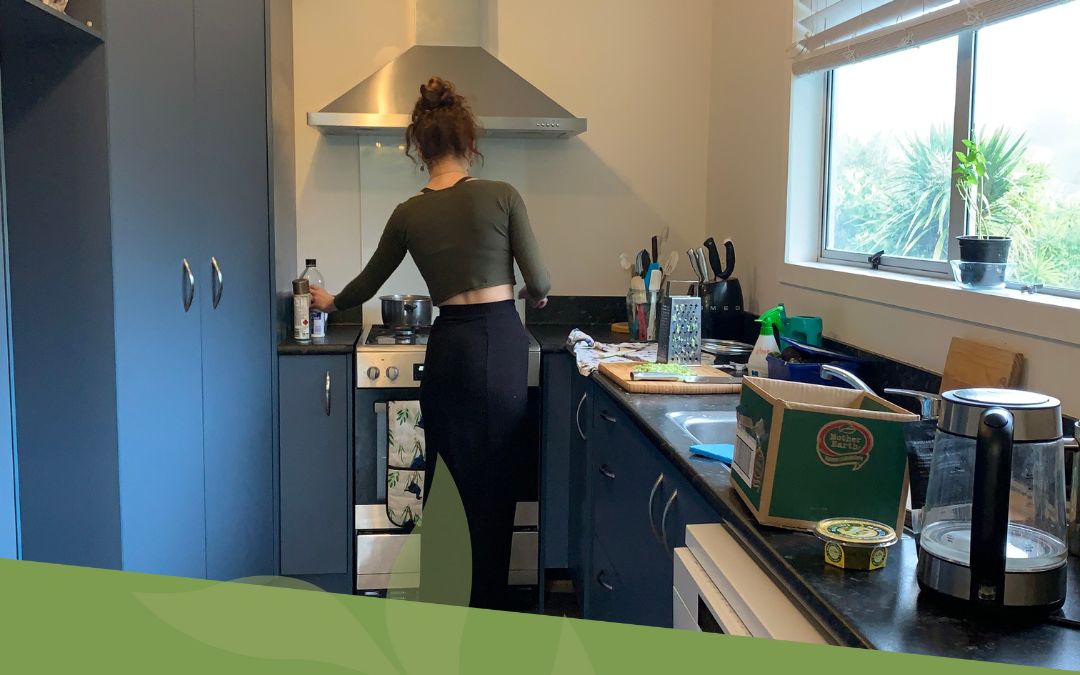Part of growing up means getting older, managing more ‘stuff’ and taking on more responsibilities … even if we don’t like it!
As your child becomes a tween, then a teen, then an adolescent, their contribution to the household can increase along with their age.
Doing jobs and helping out around the house has an important part to play when it comes to stepping into becoming a self responsible adult.
Not only does your young person learn important life skills, they also contribute and that gives them a sense of being valued in the place they belong most – at home.
You can reasonably expect your rangatahi to be responsible for their own things like their room, their dishes, their washing. You can also expect they contribute to the ongoing tidiness of shared spaces too – like the bench, the bathroom and the lounge.
They’re part of a family and they’re part of a team. Teaching your adolescent how to be a part of a team while they’re still at home sets them up beautifully for being a great team member in their flats, in their first jobs and in their friendship groups.
The more our adolescents practice being a team member who contributes to the growth of the team’s well being, the more these skills become reinforced. These skills taught well now set your young person up for success as an adult.
Here are 9 reasons why being responsible for contributing to the household is important.
# Life Skills
Everyone needs to know how to keep their own clothes clean, cook a meal, tidy up after themselves and vacuum. Everyone.
# Reality Check
Actions (or no actions) always lead to a consequence. Being responsible for doing specific jobs – like their own washing – leads to a consequence – in this case having clean clothes to wear. The reverse is also true … not doing their washing leads to not having anything clean to wear, which may mean going to school in a dirty uniform.
# Creating Great Habits
By being held accountable for completing household contributions our young people learn excellent habits as they develop the discipline needed to help out.
# Time Management
Having to make the time to complete their school work, have a social life, be on line AND contribute to the household helps our rangatahi to develop excellent time management skills.
# Supporting Each Other
We’re all in this together right? Everyone’s contribution counts, and that’s important. Teamwork and togetherness grow when everyone helps out.
# Talking to Each Other
Having to negotiate nights to cook, which responsibilities to take on and who goes next with the washing machine enhances communication skills – and not just parent to child, also between siblings.
# Growing Confidence
Being successful at and being appreciated for their contributions boosts our young people’s confidence and self worth. Knowing they can do tasks gives them a sense of independence and control. Our rangatahi get to feel pride and enjoy being a part of the team.
# It’s Not All About Me
Young people who contribute within their households learn to appreciate the effort that goes into making a home run smoothly. They become aware of the effort others put in as well as themselves.
# Growing Their Sense of Where the Dollars Go
As our teens become closer to the age of flatting, sharing costs and budgeting with them is an invaluable start to their lives and can grow their sense of financial responsibility.
Sounds Great, What do I do next?
Be reflective:
- How much do you currently expect your tween, teen or adolescent to contribute?
- What are you doing that’s supporting, growing and nurturing your adolescent and yourself that you can do more of?
- What could you be doing less of?
- What could you try out to see if it works?
- Where can you look for support? Use this link to book a strategy call with Melanie and get your whānau flying.

